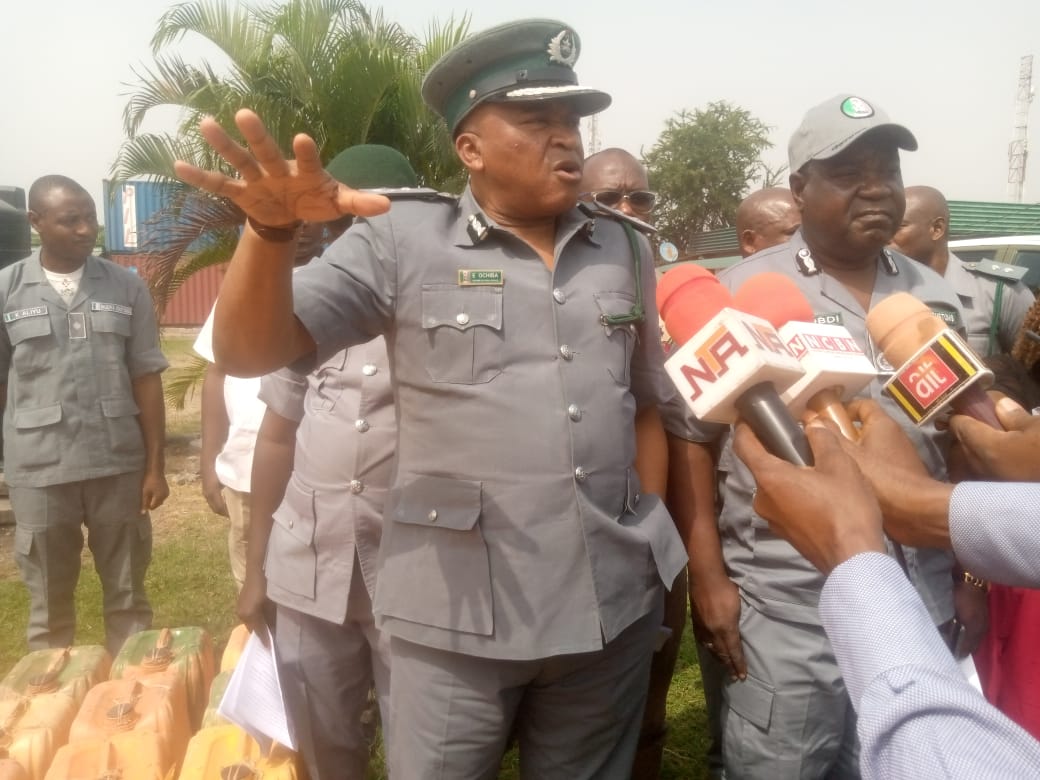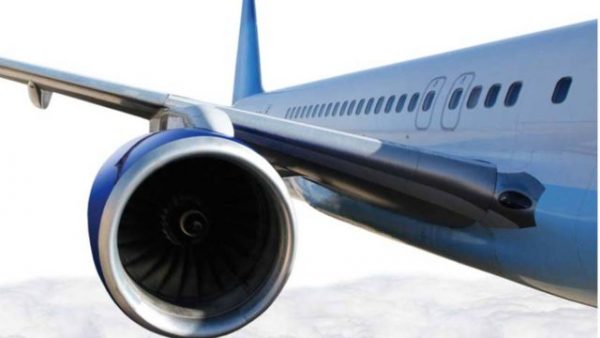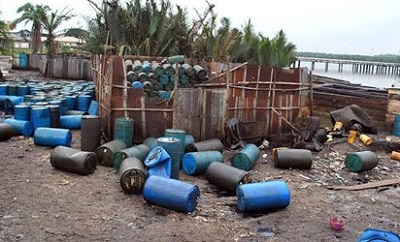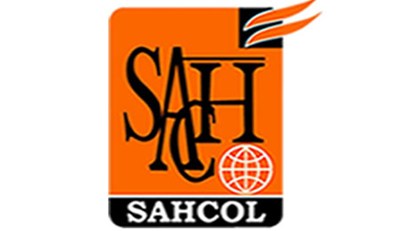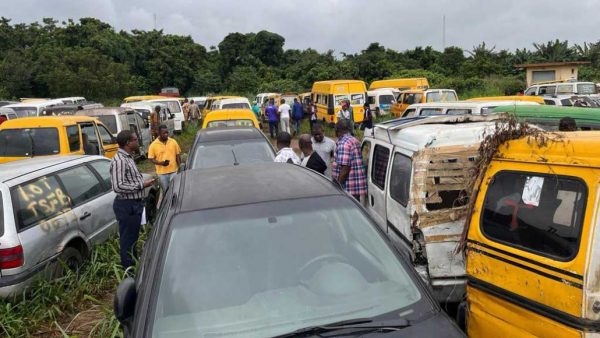Theatre of The Absurd in Presidency! Why Buhari Declined Assent To NTC Bill, Again
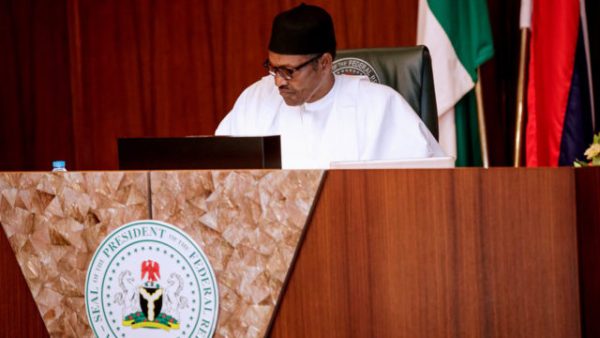
*How Navy created monopoly at Lagos ports
*NPA describes Navy monopoly as an ‘aberration’
The President revealed this in a letter addressed to the Senate President, Senator Bukola Saraki on April 18th, 2019 and received by the Senate on April 25th, 2019, which was signed by him.
Although this development negates the President’s frugal disposition on managing the nation’s resources as the establishment of a new agency would cost the nation more, he stated that NTC should be a new entity in view of the required skill set and expertise for the performance of its regulatory functions.
The President also noted that the idea to attempt to transfer the obligations and liabilities of the NSC to NTC was misconceived.
Another reason highlighted by President Buhari for declining assent was that the bill under Part XXI Section 110 (1) & (2) seeks to take away the authority of the Minister of Works as conferred by the Federal Highways Act in the management, direction and control of Federal Highways in Nigeria.
Similarly, President Buhari also noted that the broad regulatory ambit of the proposed NTC over the operation and management of the vast Nigeria transport sector conflicts with areas of regulatory oversight of the recently established Federal Competition and Consumer Protection Commission.
Meanwhile, industry experts have argued that the overlapping functions of NTC can be streamlined to allow passage of the bill which has tarried for almost a decade.
Some observers have also raised questions about the government’s wherewithal to create a new entity which should have zonal offices across the geopolitical zones, recruit and train the requisite manpower.
The NTC Bill and Federal Roads Authority (Establishment) Bill 2018 were among some of the bills which the Senate had last year passed to the President for assent.
However, the bills were returned to the National Assembly by the President over issues of technicalities and use of language, that would bother on overlap of functions with other agencies if signed into law.
Following this, officials of the Transport Ministry and counterparts in the aviation industry, among other undisclosed interest groups had severally been assembled to resolve critical areas of conflict and provisions that are to be delineated and streamlined.
What amazes industry observers is President Buhari’s preference for a new entity as though it will guarantee an interest-free NTC, thereby laying credence to the report in some quarters that some powers were out to kill the bill despite its economic and social benefits to the nation.
This rejection is coming again after the Secretary to the Federal Government, Mr. Boss Mustapha, had late last year given hope on the NTC bill when he said that the Executive arm of government was committed to playing its role in the passage of the bill into law.
NTC bill appears to have taken the shape of the Petroleum Industry Governance Bill (PIGB) which process started in 2008 and passed last year but which assent was turned down by the President.
Meanwhile, as the Federal Executive Council ( FEC) appears ready to grant the Council for the Regulation of Freight Forwarding in Nigeria (CRFFN) approval to begin the collection of the controversial Professional Operating Fees (POF) at the ports and border posts, this week, the new Council members have uncovered wanton fraud perpetrated by the last administration headed by the Registrar, Sir Mike Jukwe, and allegedly aided by the former Permanent Secretary and some officials in the Federal Ministry of Tranportation. Consequently .the League of Maritime Editors and Publishers has since swung into investigations with rattling revelations .billed for next week.
MMS Plus gathered that the leadership of the Council is polarized along divergent interests inspired by the POF collection even as the new Governing Council Chairman of the Council, Col. Abubakar Tsann (rtd) has been mobilizing support for silence.
How Navy created monopoly at Lagos ports
In another development, uncertainty clouds the operations of the corrupt taskforce created to ease the flow of traffic at Lagos ports with stakeholders miffed at the monopoly with which the Nigerian Navy operated without recourse to other members of the team.
In what became a mindboggling revelation last week, the Nigerian Ports Authority (NPA) distanced itself from the mammoth corruption in the registration of truck parks designated at hotspots to obtain call-ups needed to access the ports, stating unequivocally that the onus was on the Navy.
Following the myriad of complaints from truckers and other stakeholders on the Navy’s mismanagement of the manual truck call-up system, a situation which fanned the flames of corruption and extortion by security operatives including the Navy, NPA has given indication that the Navy would be kicked out of the port access routes.
The Executive Director, Marine and Operations at NPA, Dr. Sekonte Davies stressed this when addressing port stakeholders on the operationalization of the Lilypond and Tin Can Second Gate truck parks last week.
Although the NPA Executive Director revealed that as part of efforts to curb the numerous challenges associated with the manual call-up system at the Lagos ports, NPA would operate one centralized truck call-up owned and managed by the Authority, he couldn’t explain why the Navy was allowed to operate a monopoly of registering truck parks and managing the truck call-up system.
“The last regime was an aberration because only NPA should be issuing call-up. This is what we intend to achieve with a centralized call-up system solely owned and managed by NPA” he told MMS Plus.
While the taskforce was headed by the Navy under the former Commanding officer, Nigerian Navy Ship (NNS) BEECROFT, Commodore Okon Eyo, other members of the taskforce include the Nigerian Airforce, Nigerian Army, Lagos State Transport Management Authority (LASTMA), Department of State Security Service (DSS), Nigeria Security and Civil Defence Corps (NSCDC), Nigerian Ports Authority (NPA) and other trucking associations like the Association of Maritime Truck Owners (AMATO), Nigerian Association of Road Transport Owners (NARTO), among others.
Port stakeholders have been worried by the fact that only the Navy has been singled out for queries on extortion and the shady registration of truck parks.
Since the Navy was part of the taskforce team in-charge of regulation the movement of trucks, what were only parties doing when the Navy monopolized the regulation of the system? Did other security agencies including NPA decide to turn a blind eye or were they part of the corrupt system? Why did NPA concede such critical aspect of managing the call-up system and registering truck parks to the Navy?
The National Naval Spokesperson as well as his subordinate at the NNS Beecroft has kept mum on these issues despite several attempts to get clarification.
Recall that the Navy recently found over a hundred million Naira in the bank account of an officer (name and position withheld) who amassed the colossal sum from bribes collected at Apapa port environs as a security personnel responsible for the truck call-up management.
The officer was said to have been caught allowing irregular movement of trucks on the Apapa bridge after receiving bribes, the senior officer who caught him rebuked him but the junior was unruly and his actions were reported to the Nigerian Navy disciplinary units.
Sources say that the investigation on the junior officer was for insubordination when hundreds of millions was found in his bank account, yet the Chief of Naval Staff (CNS), Vice Admiral Ibok-Ete Ibas was said to have been more worried by the degree of indiscipline in the service displayed by the unruly officer than the strange sum in the junior officer’s bank account.
Our source alleged that the senior Naval officers have been involved in the settlement process which include certain sums given to President Muhammadu Buhari’s principal Aide in the Presidency (name withheld).




